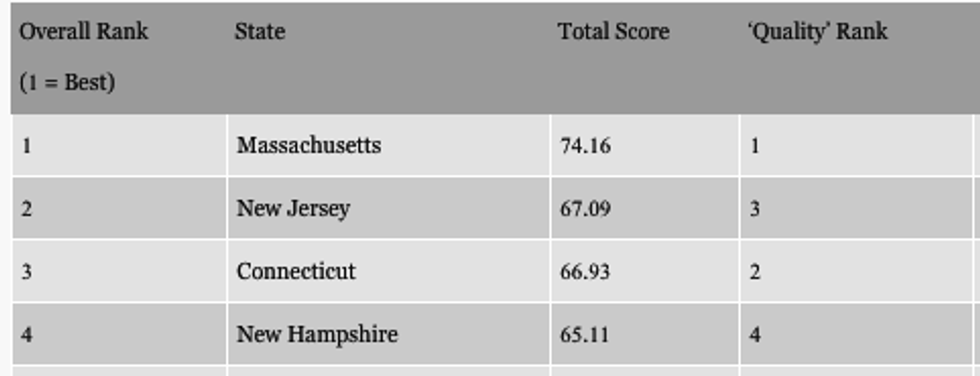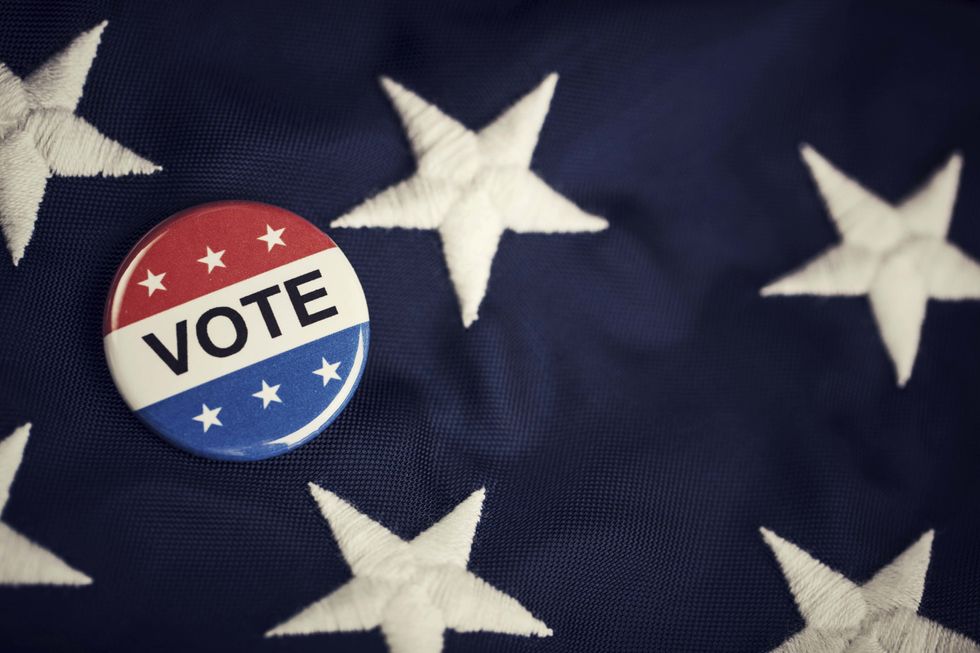"Every child in America should be acquainted with his own country. He should read books that furnish him with ideas that will be useful to him in life and practice. As soon as he opens his lips, he should rehearse the history of his own country." — Noah Webster, "On the Education of Youth in America"
The Founding Fathers Envisioned an Educated Citizenry.
When the founders drafted our constitution, they imagined a citizenry to whom civic education and civic responsibility were priorities. We have failed to carry out and uphold this idea. According to a study by the Intercollegiate Studies Institute, "college graduates on average not only failed our civic literacy exam, [further] an expensive college degree actually adds less to a graduate's overall level of civic knowledge." The same study warns of a "coming crisis in citizenship" and I could not agree more.
Noah Webster's "On the Education of Youth in America."
Webster wrote that American students must know and love the laws. He stated that this knowledge must be diffused by means of schools and newspapers, and an attachment to the laws may be formed by early impressions upon the mind.
His recommendation for education in America was a course of study that emphasized American history and government. He goes on to say that "a selection of essays, respecting the settlement and geography of America; the history of the late revolution and of the most remarkable characters and events that distinguished it, and a compendium of the principles of the federal and provincial governments, should be the principal school book in the United States."
We have established that, in the creation of this government, the founders expected and advocated for an emphasis on history and civic education. With this in mind, we must ask ourselves: how we have veered so far from the founders original intent?
I Decided to Conduct My Own Survey of My Fellow University Students.
The survey was of a random cross-section of students from a variety of states, all having attended public school at one point in time. The questions asked were what I considered to be general knowledge and that should have been retained by anyone having taken a civics class. My findings were disappointing but not unexpected.
No one answered all of the questions correctly. Only one person was able to remember that the U.S. Constitution is an anti-majoritarian document. A mere 44% remembered what the 4th amendment was, and only 55% remembered the 8th amendment. Furthermore, some students could not even recall the number of amendments in the Bill of Rights. A dismal 55% could remember that each state was allotted two senators. Perhaps one of the most unfortunate findings was that not one person could fully explain the purpose of the Electoral College.
This begs the question: are calls to abolish the Electoral College founded by a misunderstanding of its purpose?
Top Quality-Ranked Public Schools.

2018 chart from Forbes, showing Massachusetts and New Jersey in the top 3 for quality public education.
Thirty-three percent of the students surveyed were from either New Jersey or Massachusetts. Both are ranked highly in quality public education. With this in mind, one would assume that students who attended public school in these states would perform better on a civic education survey than students who attended public school in a state like South Carolina, which is ranked 40th in quality.
However, this was not the result. Another 33% of those surveyed were educated in South Carolina public schools. There was no significant difference in the civic literacy of these students compared to those from Massachusetts and New Jersey. To me, this signals that regardless of the resources and capabilities of the schools, civic education is not being made a priority.
Why is Civic Education no longer a priority?
I attended public schools in the state of New Jersey, 3rd in quality according to a 2018 ranking. I was taught civics in 7th grade in a lackluster fashion. Even if I was taught civics fantastically, I wouldn't have retained it all at 13 years old. This type of information needs to be consistently reinforced.
I then chose to take advanced placement government in 12th grade. I and about 15 others took this class. This means that the other 200 something students in my graduating class left high school having only received a brief lesson on civics in the 7th grade. Clearly, civics should be taught more intensely and far more often.
Furthermore, students feel less inclined to seek this type of education, because discussions of government and politics are generally discouraged. Many people consider it polite to avoid these conversations. Instead, these conversations should be encouraged. Students must be capable of having a dialogue with those whose opinions differ and also maintain a professional temperament. We must choose to stop avoiding the tough conversations and thus the important knowledge regarding our system of governance.






























